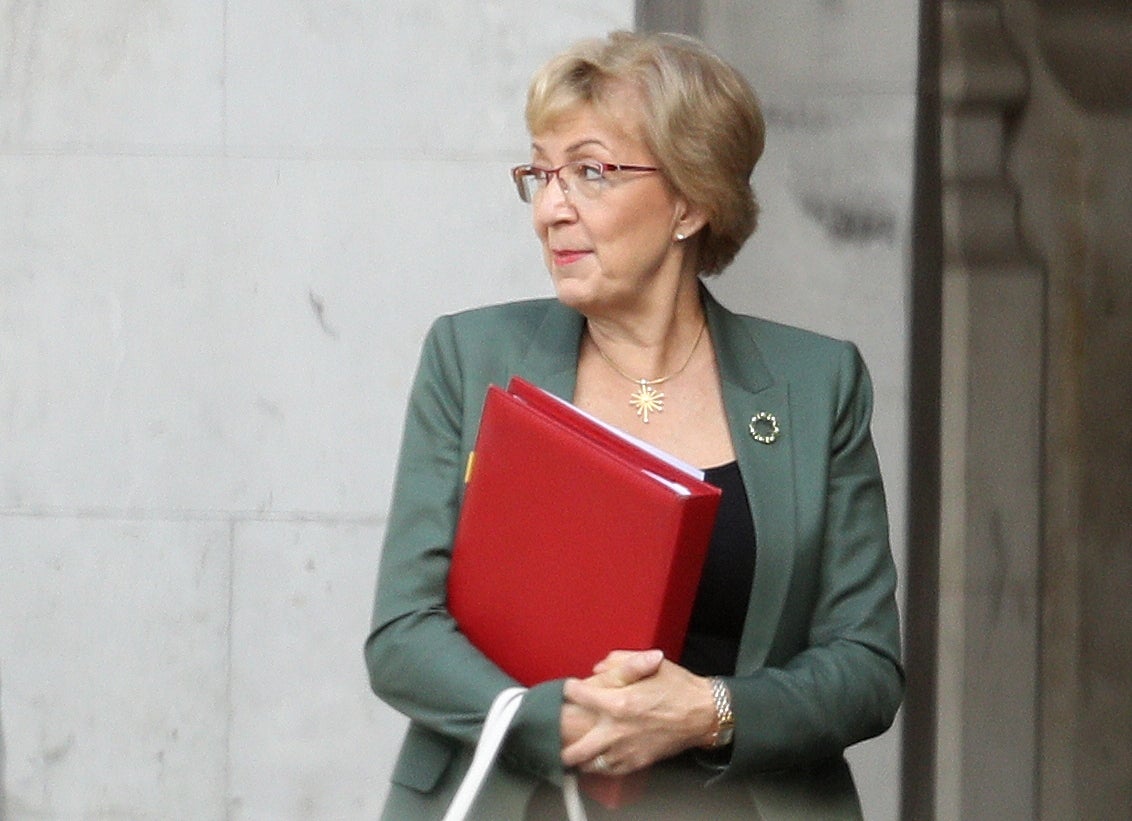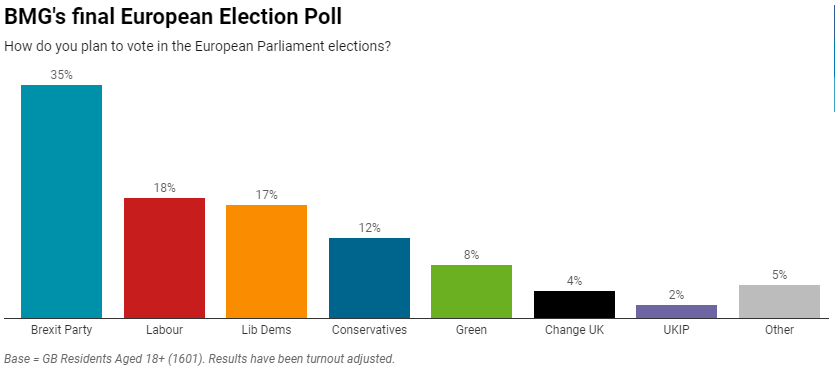Theresa May: Calls for prime minister to resign as key cabinet Brexiteer Andrea Leadsom quits
The Prime Minister is facing Tory fury over her offer of a binding Commons vote on a Final Say referendum

Your support helps us to tell the story
From reproductive rights to climate change to Big Tech, The Independent is on the ground when the story is developing. Whether it's investigating the financials of Elon Musk's pro-Trump PAC or producing our latest documentary, 'The A Word', which shines a light on the American women fighting for reproductive rights, we know how important it is to parse out the facts from the messaging.
At such a critical moment in US history, we need reporters on the ground. Your donation allows us to keep sending journalists to speak to both sides of the story.
The Independent is trusted by Americans across the entire political spectrum. And unlike many other quality news outlets, we choose not to lock Americans out of our reporting and analysis with paywalls. We believe quality journalism should be available to everyone, paid for by those who can afford it.
Your support makes all the difference.Theresa May‘s premiership stands on the brink, after the resignation of key cabinet Brexiteer Andrea Leadsom.
Announcing her bombshell decision to quit on the eve of European elections in which the Tories are set for a historic defeat, the leader of the Commons said she no longer believed the prime minister’s Brexit plans would deliver on the EU referendum result.
Her departure will spark fears in Downing Street of an exodus of Leave-backing ministers, amid a cabinet-level revolt over the PM’s offer of a binding Commons vote on a Final Say Brexit referendum.
Ms May was hunkered down in No 10, apparently resisting requests from ministers, including home secretary Sajid Javid and Scotland secretary David Mundell, for a meeting, although she is expected to see foreign secretary Jeremy Hunt on Thursday. The former Tory leader Iain Duncan Smith, who was himself forced out in 2003, said: “The sofa is up against the door, she’s not leaving.”
In a night of high drama in Westminster, the PM appeared to have bought a few more days by agreeing to see the chair of the backbench 1922 Committee on Friday. Sir Graham Brady is expected once more to ask for a timetable for her departure, with the implicit threat that a no-confidence vote in her position could otherwise be brought forward to June.
But her future was again cast into doubt by the resignation of Ms Leadsom, who stood against her for the leadership in 2016 and has made clear she will join the battle for the succession.
In a damning letter to the PM, Ms Leadsom said she had remained in the cabinet to “fight” for Brexit, but added: “I no longer believe that our approach will deliver on the referendum result.”
She said she was unwilling to carry out the Commons Leader’s role of announcing to the House on Thursday a Withdrawal Agreement Bill with “new elements that I fundamentally oppose”.
In a statement, a Downing Street spokesman said the prime minsiter was “disappointed” by her decision but ”remains focused on delivering the Brexit people voted for”.
Earlier, Ms Leadsom had joined members of the “pizza club” group of cabinet Brexiteers to discuss their response to the new Brexit deal set out by Ms May in a speech in London on Tuesday. Although absent from the meeting, defence secretary Penny Mordaunt is also understood to have voiced concerns to Downing Street. Sources close to Mr Mundell said he was concerned that Scottish Nationalists could take advantage of the referendum pledge to bolster their case for an independence vote.
Ministers were privately protesting that Ms May’s package went further than they had agreed in a stormy cabinet meeting earlier in the day, with some suggesting they expected the PM to offer only to make time for a vote on a second referendum, rather than to write it into the text of legislation.
Downing Street insisted that the speech represented “the agreed way forward” and there were no plans to change the text of the bill before its publication on Friday.
As a string of formerly loyal MPs declared they would rebel in the crucial second reading vote on 7 June, senior backbencher Tom Tugendhat – who backed the PM on previous Brexit votes – went public with a demand for the departure of a “discredited” Conservative leader.

Writing in the Financial Times, the chair of the influential Commons Foreign Affairs Committee said leadership had been “absent” from the government for too long.
“This can only change with a new prime minister who can inject fresh energy into a moribund process and rebuild the trust necessary to deliver a deal,” he said.
Former minister Tim Loughton submitted a letter of no confidence in the PM to Sir Graham.
The challenge to Ms May’s position came on the eve of what will be the Conservatives’ worst result in a national election since the party’s creation in 1834, according to a new poll.
The BMG survey for The Independent put Ms May’s party on just 12 per cent for Thursday’s European Parliament elections, trailing in fourth place behind the dominant Brexit Party on 35 per cent and Labour and Liberal Democrats vying for second on 18 per cent and 17 per cent respectively.
Tories had lost three-quarters of their supporters from the 2017 general election, with the bulk of them switching to Nigel Farage’s new party, the poll found. Just 9 per cent of those who voted Leave in the 2016 referendum said they will back Theresa May’s party on Thursday, with 67 per cent opting for the Brexit Party.
Ms May faced a wall of stony hostility from much of her own party as she outlined her “new Brexit deal” in the House of Commons to near-silence on Tory benches.
Leave-backing backbencher Lee Rowley accused her of leading “a government paralysed by inaction … Where every principle is being shredded, trust is shattered” to get a deal through. The new package was dismissed by Tory Julia Lopez as “an unholy fudge” and by Simon Clarke as “a devastating failure of politics, leadership and statecraft”.
The embattled prime minister told MPs: “If the bill is not passed then this House will be faced with a very stark choice, and that choice will be whether they go for no deal or whether they go for something which is either revoking Article 50 or a second referendum with the intention that many have to stop Brexit.”
Labour said Ms Leadsom’s departure showed that “the prime minister’s authority is shot and her time is up”.
Chairman Ian Lavery said: “The government has made a catastrophic mess of the Brexit negotiations, our steel industry is under threat and universal credit is pushing people into poverty.
“For the sake of the country, Theresa May needs to go, and we need an immediate general election.”
Join our commenting forum
Join thought-provoking conversations, follow other Independent readers and see their replies
Comments